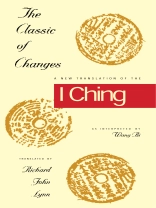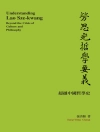Used in China as a book of divination and source of wisdom for more than three thousand years, the I Ching has been taken up by millions of English-language speakers in the nineteenth century. The first translation ever to appear in English that includes one of the major Chinese philosophical commentaries, the Columbia I Ching presents the classic book of changes for the world today.
Richard Lynn’s introduction to this new translation explains the organization of The Classic of Changes through the history of its various parts, and describes how the text was and still is used as a manual of divination with both the stalk and coin methods. For the fortune-telling novice, he provides a chart of trigrams and hexagrams; an index of terms, names, and concepts; and a glossary and bibliography.
Lynn presents for the first time in English the fascinating commentary on the I Ching written by Wang Bi (226-249), who was the main interpreter of the work for some seven hundred years. Wang Bi interpreted the I Ching as a book of moral and political wisdom, arguing that the text should not be read literally, but rather as an expression of abstract ideas. Lynn places Wang Bi’s commentary in historical context.
İçerik tablosu
Acknowledgments
Introduction
General Remarks on the Changes of the Zhou, by Wang Bi
Commentary on the Appended Phrases, Part One
Commentary on the Appended Phrases, Part Two
Providing the Sequences of the Hexagrams
The Hexagrams in Irregular Order
Explaining the Trigrams
The Sixty-Four Hexagrams, with Texts and Commentaries
Bibliography
Glossary
List of Proper Nouns
Index
Yazar hakkında
Richard John Lynn has a Ph.D. in Chinese from Stanford University. Acclaimed as one of the outstanding translators of our time, he has taught at the University of California, Berkeley; Auckland University; and the University of British Columbia. He is currently professor of Chinese thought and literature at the University of Toronto. Lynn has also served as a Humanities Administrator in the Division of Research at the NEH, in charge of the Translators Grants Program.












